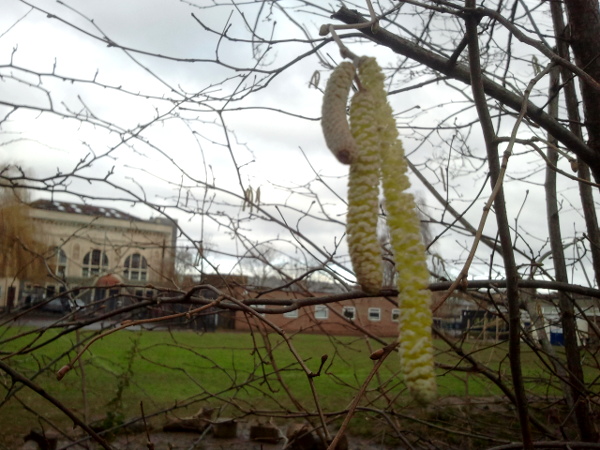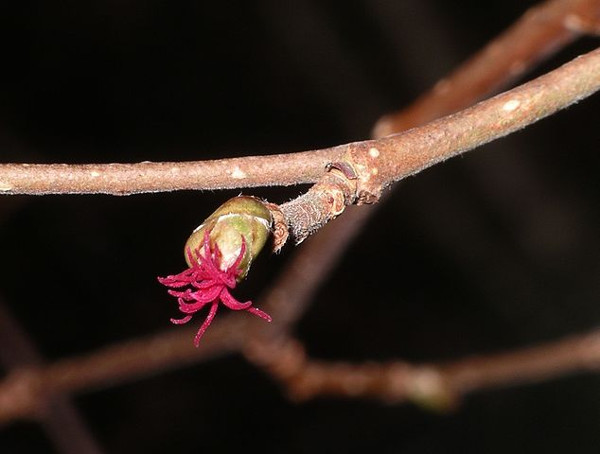As we enter another month and a chill northerly wind drives temperatures down, it’s encouraging to know that signs of spring are appearing.
Along with the appearance of snowdrops (posts passim), the swelling of hazel catkins is another early sign of an impending change of season.
The photograph below was taken yesterday at the junction of Stapleton Road, Trinity Road and Lawford’s Gate in Easton.

A catkin or ament is a slim, cylindrical flower cluster, with inconspicuous or no petals, usually wind-pollinated (anemophilous) but sometimes insect-pollinated (as in Salix). They contain many, usually unisexual flowers, arranged closely along a central stem which is often drooping.
Hazel catkins are the male flowers of the plant.
The female flowers – as shown in the photo below – are much smaller and harder to spot.

The change from winter to spring was admirably encapsulated by the final couplet of Percy Bysshe Shelley‘s 1819 Ode to the West Wind.
The trumpet of a prophecy! O, wind,
If Winter comes, can Spring be far behind?
In the chilly North our catkins have been visible on the motorway slip road for about two weeks. This is surprisingly early. Snowdrops are just peeping through the soil.
Winter still has an icy grip though: lots of visitors to the bird feeders today, including a nuthatch, blue tits, coal tits, great tits, a robin and a whole flock of long tailed tits.
How do you stop a grey squirrel from making off with coconuts, I would like to know. So cheeky, staring at me as if to say “Well, what are going to do about it? “
Hi Hilary
Many thanks for your nature notes. I do envy your abundant wildlife up in Lancashire; you have so much more of it to appreciate than we inhabitants of the inner city. 🙂
As regards grey squirrels, the RSPB has some advice you might find useful.